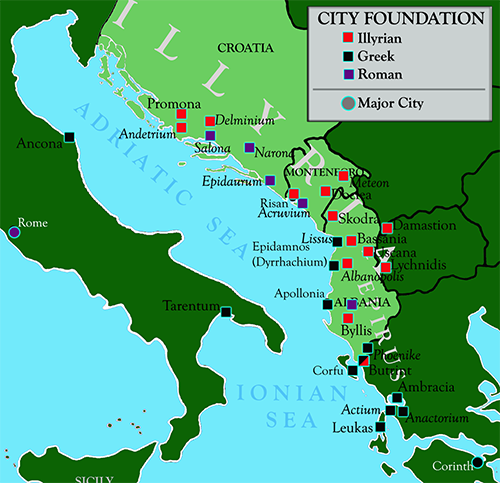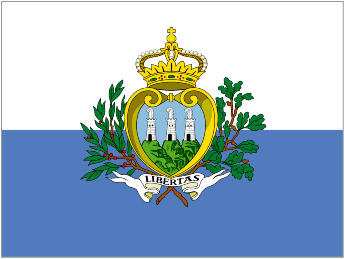There's something fascinating to me about microstates. It's the 'micro' part really. There's something that's just inherently interesting to me about these tiny, tiny, countries that, by all sense of reason, should have been absorbed into a bigger country a long time ago. I also find it interesting that these countries still keep their traditions alive, and maintain a semi stable population, despite the lure of big cities elsewhere.
For those of you who are unaware, a microstate is a very small country that has (and this is the important bit)
received international recognition of sovereignty. International recognition is necessary, it's what divides say, San Marino, the oldest
republic, from my living room, which I now officially declare to be the Duchy of High Westnerdia.
There are a least a couple dozen microstates all over the world, with the most of them being in the Caribbean or Polynesia. We'll talk about those later, but for now, let's go over the European ones.
Vatican City

You've undoubtedly heard of this one. The Vatican sits smack dab in the middle of the Italian capitol of Rome, and is the epicenter of the operations of the Catholic church, still the largest Christian religion in the world. The Vatican is the home of the Pope, currently Pope Francis, and his college of Cardinals. As far as microstates go, the Vatican is very small, covering less than a square mile of land, so if there's ever a smallest country competition, the Vatican will definitely win.
Despite it's small size (and the fact that more than half of its citizens live abroad!), the Vatican is a more or less functioning country. They print their own currency, issues passports, participate in the Olympics, and participate in international organizations. The only thing the Vatican government doesn't do is tax its citizens, instead relying on donations and stamp sales to generate revenue.
 |
| St. Peter's Basilica |
This shouldn't be as surprising as it is. After all, the Vatican, formerly known as the Papal States, were an enormous world power from the middle ages up until about the age of enlightenment. The Papal States had an army (they still do!), and held power over Kings. They've been known, more than once, to get
involved in international wars, and to defend their interests with assassination, espionage, and all out war. But we'll delve into more of that later. ;)
The Vatican is an absolute monarchy, one of the last few in existence. In the Vatican, the Pope is In Charge. And while the Cardinals may have the power to elect him, they don't have the power to remove him, and once elected the Pope becomes ruler of the Vatican for life. (Or until he decides to retire, and Pope Benedict XVI did in 2013)
Monaco

Monaco, home of the wealthy and glamorous, home of Princess Grace, is a tiny principality (meaning it's ruled by a prince, more on that later.) wedged between France and the ocean. You would think that, being next to France, a once notorious power and land hungry behemoth, Monaco would have ceased to exist long ago, and for a while it did. Monaco was annexed during the French Revolution, and was not restored until 1814. It has since then been a protectorate, first of Sardinia, then France, who protects it to this day.
The country of Monaco is a constitutional monarchy, headed by members of the Grimaldi family since the 1200s. The current Prince is Albert II, son of Prince Ranier III and the actress-turned-princess Grace Kelly. As far as actual governing goes though, unlike in many constitutional monarchies, Prince Albert actually has a lot of power. He is the head of the executive branch of the government, with a Minister of State beneath him. Prince Albert, however, seems to focus his attentions outside of Monaco, focusing mainly on lobbying against climate change.
 |
| The Monegasque Princely Family |
One of the reasons that so many people move to this tiny French and Monegasque speaking country is because of the lack of income tax in the principality. Taxation was abolished in the 1800s, when the Grimaldi family decided to throw the common people a bone. Besides, tax money didn't really matter to the Grimaldis, the casino had already made them fabulously wealthy.
Monaco's economy is driven by its tourism. Tourists flock from around the world to visit its world famous casino, to soak up the sun and the stunning scenery. The Monaco Grand Prix is held there every year, as is the Monte-Carlo television festival.
San Marino
San Marino is the oldest republic in the world, and they are very proud of that fact. They were established in 301 CE by St. Marinus, a christian stonemason who was seeking refuge from the Christian hating Romans who,
as we have covered, were dicks.
St. Marinus scrambled up Mt. Titano, one of the major defining geographical (and geological!) features of San Marino today. From there he established his highly improbable republic.
Why is San Marino highly improbable? Glad you asked.
You see, San Marino is a tiny country located smack dab in the middle of Italy (the country formerly known as Rome), a region known for conquering and being conquered. In fact, before the unification of Italy in the 1800s Italy was made up of several city states just like San Marino (if somewhat larger, more autocratic, and land hungry). Yet San Marino has, in its entire history, been occupied only twice, and never conquered. Napoleon respected the sovereignty of San Marino, and San Marino remained neutral and unmolested during WWII.
Of course, this might be because San Marino honestly doesn't have a lot worth taking. The country is mainly mountain, with only 16% of their land useful for farming. Their main export was stone, until they over mined their mountain. They don't have a large population, and no army worth bothering. (The current Sammirinese army is comprised of 50 citizens.)
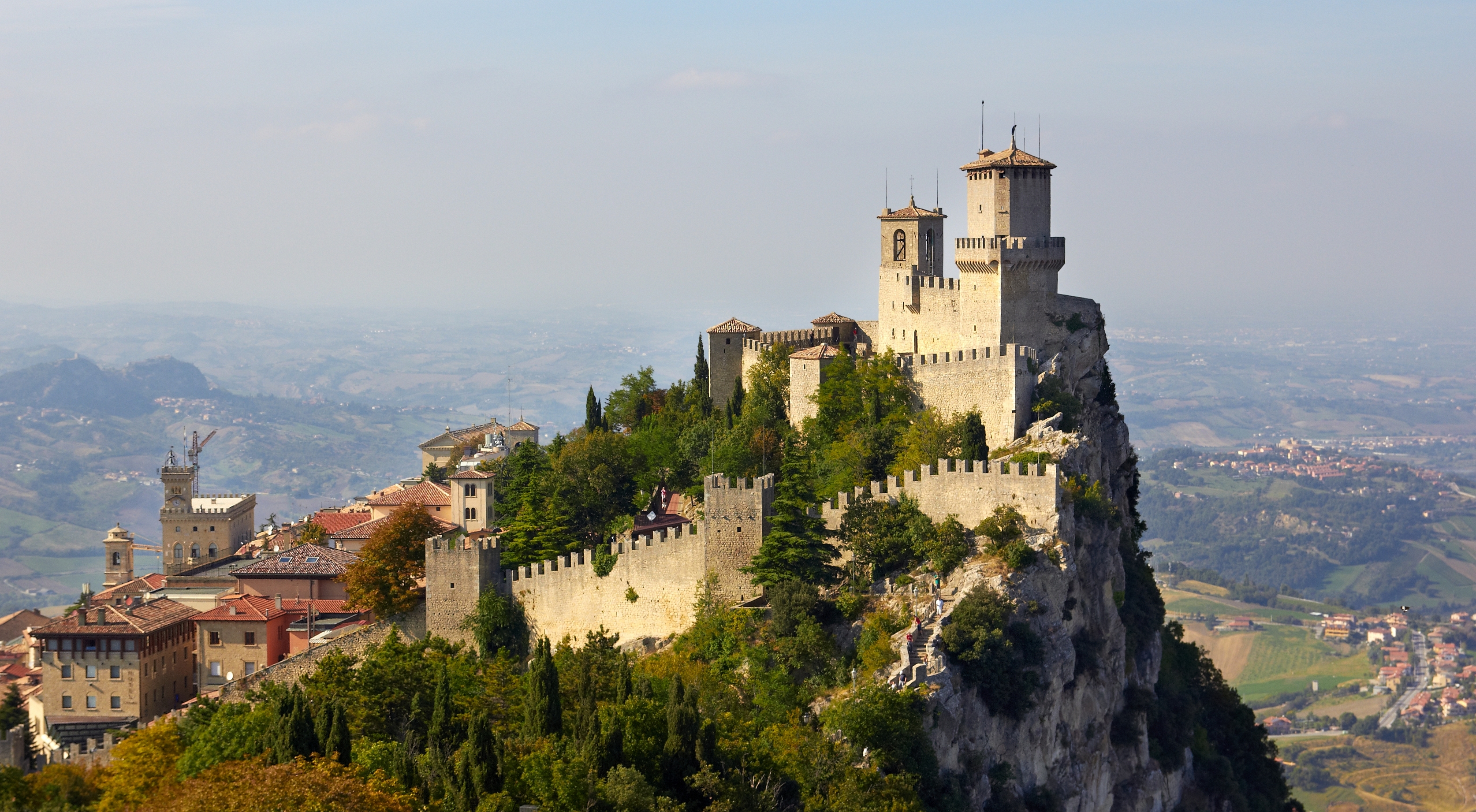 |
| Guaita Fortress |
Today, San Marino is a peaceful, prosperous, if not quite self-sufficient state. Extensive quarrying since the early CEs has sadly left San Marino with limited mineral resources, so like many micronations it's main revenue comes from tourism and, surprise surprise, stamps! San Marino stamps, while not the rarest in the world (those would be the stamps of the tiny island of
Tristan da Cunha), are still highly prized by collectors. San Marino relies heavily on Italy for electricity, as well as printing its coinage. The official currency of San Marino is the euro, even though San Marino has yet to join the EU.
Lichtenstein
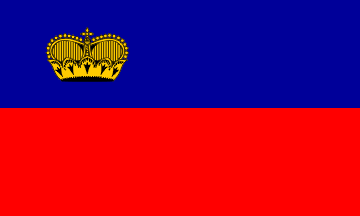
So we've
talked a little about Lichtenstein before, and how Switzerland keeps attacking it, but there's more to this tiny country. Squeezed between Austria and Switzerland, Lichtenstein is one of the worlds foremost tax havens, and is also the only country you can rent on Airbnb.
For years Lichtenstein's primary stream of revenue comes from international corporations who establish skeleton 'offices' in Lichtenstein to take advantage of the country's lenient business tax laws. However, due to international pressures, Lichtenstein revised its tax laws in 2009, and is making an effort for more transparent banking practices.
Lichtenstein came into being when the Counts of Hohenems, being short of cash, had to sell off some land, namely the county of Vaduz and the dominion of Schellenberg. Both areas were purchased by Prince Johann Adam, and he united them into an independent principality, though a ditch still divides the area to this day. It took a while for the tiny principality to become a fully functioning independent state; it was occupied first by Austria, then by France, and later by Germany until 1866 when Napoleon recognized Lichtenstein as a sovereign nation.
 |
| Lichtenstein Castle |
Today, Lichtenstein is a quiet country, and the largest manufacturer of false teeth in the world. They rely heavily on their neighbor Switzerland, both for trade and for defense. Lichtenstein has also adopted the Swiss franc. The country is ruled by Prince Hans Adam II, though most administrative details are taken care of by his son Alois. The Lichtenstein princely house has an unusual amount of power for a European monarchy--Prince Hans is able to both veto bills put forward by parliament, and fire the entire government should he feel like it.
Andorra
We've
talked a bit about Andorra before as well, but let's talk a little more. Andorra is a tiny, Catalan speaking, oft forgotten, country sandwiched between France and Spain. There aren't a lot of natural resources, so Andorra makes money off its scenery and its loose tax laws. (a running theme among micronations) Andorra isn't a member of the EU, but it holds a 'special status' with them, and uses the Euro.
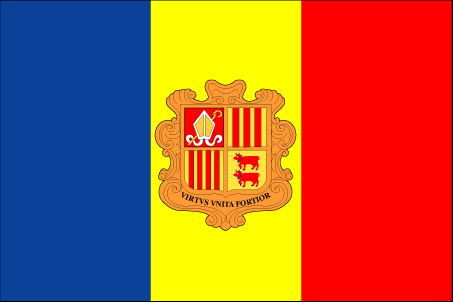
Andorra was a little late to the modern scene. In 1607 France and Spain decided that they were going to share Andorra in a feudal type situation. During this time the Andorran people were ruled over absolutely by the French and Spanish delegates, and had to pay tribute to both countries. While this may have been pretty normal seeming when the situation started, that sounds pretty insane in the modern era. The insanity continued until 1993 when Andorra adopted it's first constitution, and joined the UN. Even today the president of France, and the bishop of Urgell (Spain) are 'heads of state' of Andorra, though the title is more honorary than anything.
A good way of summing up Andorra's situation is to describe it as the child of France and Spain, and France and Spain have divorced. Andorra is supported militarily by both countries, trades with both countries, and has a titular head of state from each country. France kept Andorra safe while Spain was fighting itself, and Andorra passed notes (and goods) between the two during WWII. And in WWI, when France declared war on Germany, so did Andorra.
 |
| Andorra la Vella |
This co-parenting situation between France and Spain came about in the late 1200s when the related princes of France and the Bishops of Urgell were arguing over who got to inherit Andorra. They fought a merry war over the whole thing until the Lord of Aragon told them that they had to share.
Today Andorra is a full functioning independent country. They're known for their ski resorts, and their liberal banking laws. Andorra's a place to play, and they receive some 8 million tourists every year. Not bad for the fifth smallest nation in Europe.


